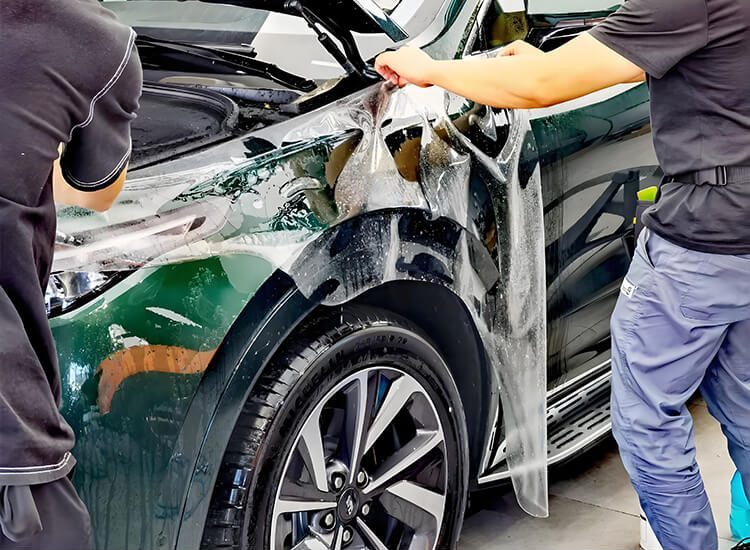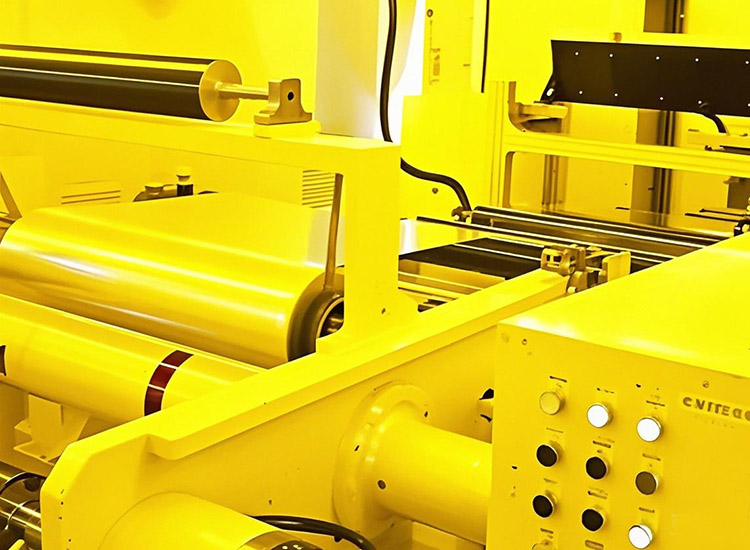Is PPF on Car Worth It? Everything You Need to Know
When you buy a new car, one of your first concerns is protecting its paint. From road debris to harsh weather, the exterior is constantly exposed to damage. This is why many car owners ask the question: Is PPF on car worth it? Paint Protection Film (PPF) is designed to shield your car’s surface from scratches, chips, and stains, but does it really justify the cost? In this article, we’ll explore what makes PPF valuable, its pros and cons, costs, and real-world benefits for different drivers.
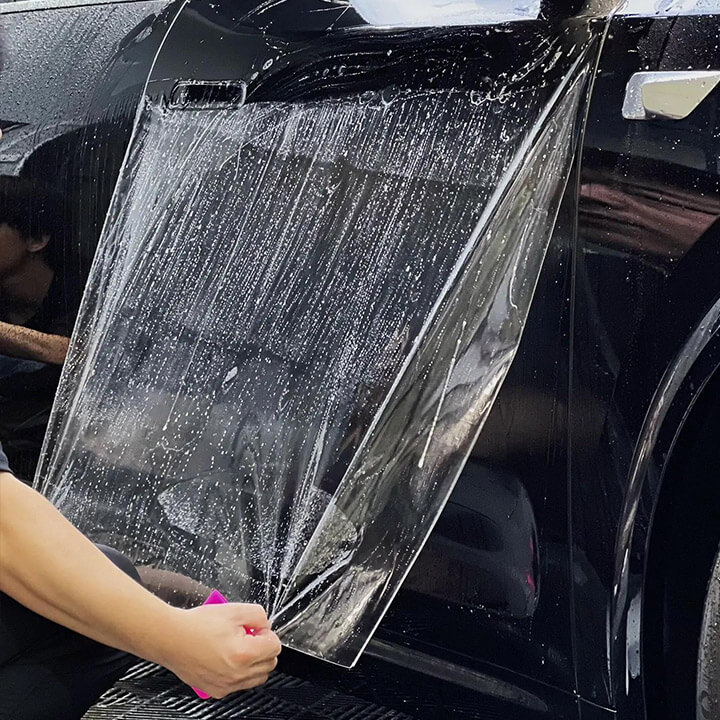
PreproPPF Clear PR-Q01
On a budget? Check out basic protection PPF PR-Q01, 5×50 ft, free shipping worldwide.
What Is Paint Protection Film and Why Does It Matter?
Paint Protection Film, also called clear bra or automotive protective film, is a thermoplastic urethane layer applied to your car’s painted surfaces. It acts like an invisible shield, protecting against rock chips, minor scratches, bug splatter, and even harmful UV rays. Modern PPF uses self-healing technology, meaning small scratches disappear with heat. This makes it a popular choice for luxury cars in Los Angeles, performance vehicles in Dubai, and everyday sedans in London. For more information on different types, check out Types of Paint Protection Film.
Is PPF on Car Worth It for Different Drivers?
Whether PPF on car is worth it depends on your driving habits, location, and the type of car you own. Let’s break it down:
For Daily Drivers
If you use your car every day, your paint faces frequent exposure to road debris, dirt, and environmental hazards. Is PPF on car worth it for daily drivers? Absolutely. It reduces paint damage, saves on repainting costs, and keeps your car looking new longer. Knowing how much paint protection film you need can help you plan coverage for daily-use vehicles.
For Luxury Vehicles
If you own a premium car, the value of PPF on car becomes even higher. Why? Because maintaining flawless paint is critical for resale value. Many owners of Tesla, BMW, and Mercedes-Benz invest in full-body PPF to ensure maximum protection.
For Harsh Weather Conditions
Drivers in areas like Canada or northern states face harsh winters, salt on roads, and gravel—all of which can destroy paint. PPF provides a reliable shield in these conditions, making it worth every penny. Learn more about how long paint protection film lasts to understand long-term benefits.
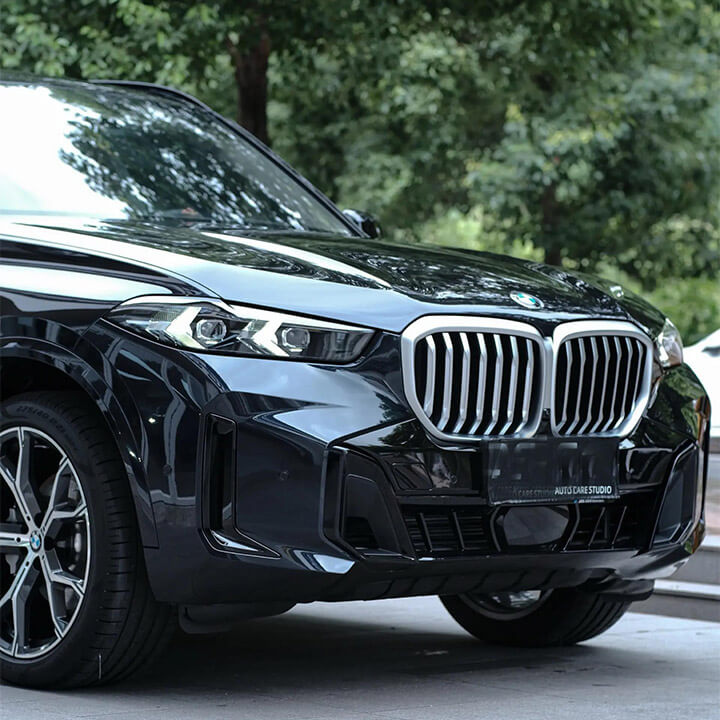
Benefits of Installing PPF on Your Car
- Scratch and Chip Resistance: Protects against rocks, debris, and door dings.
- UV Protection: Prevents fading and oxidation caused by sunlight.
- Self-Healing Properties: Minor scratches disappear with heat.
- High Gloss Finish: Keeps the car looking like new.
- Resale Value: Maintains your car’s original paint, boosting resale price.
Is Paint Protection Film Worth It on New Cars?
One of the most common questions is: Is PPF on a new car worth it? Yes—because the earlier you protect your paint, the better. Applying PPF when the paint is brand-new ensures you lock in that perfect finish from day one. For insights into different materials, read TPU vs PVC Car PPF to decide which suits your vehicle best.
Cost vs Value: How Much Is PPF on a Car Worth?
PPF is an investment. Prices vary based on brand, coverage, and installer experience. For example:
- Partial Front (bumper, hood, mirrors): $900–$1,500
- Full Front (hood, fenders, bumper, mirrors): $1,800–$2,500
- Full Car Coverage: $4,500–$8,000+
While expensive upfront, PPF can save thousands in repainting and detailing over time.
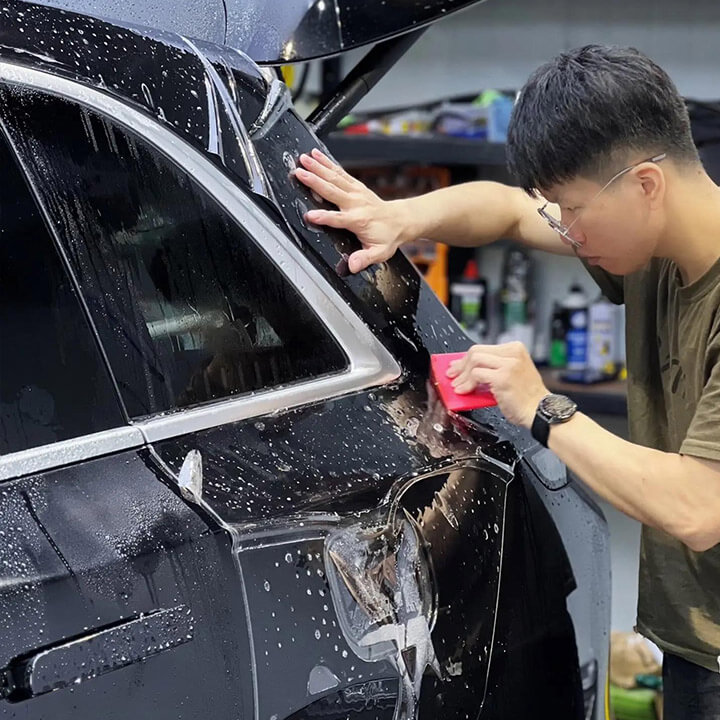
How Long Does PPF Last on a Car?
High-quality PPF lasts between 7 and 10 years with proper maintenance. Premium brands even offer 10-year warranties, which makes it a long-term investment rather than a short-term cost.
Does PPF Increase Resale Value?
Yes, does PPF increase car resale value? Absolutely. Buyers prefer cars with original paint in pristine condition, and PPF ensures that. Especially for high-end cars or those in competitive resale markets like the United States, having PPF can give you an edge. For a detailed look at industry options, see Top 10 Car PPF Brands.
Pros and Cons of PPF on Car
Pros:
- Superior paint protection
- Self-healing technology
- Boosts resale value
- Long-lasting investment
Cons:
- High initial cost
- Requires professional installation
- Cheap films can yellow over time
Common PPF Specifications, Performance, and Price Comparison
| Brand | Thickness / Specification | Performance Features | Price Range (Installed) |
|---|---|---|---|
| 3M Scotchgard™ Pro Series | ~7.5–7.9 mil (190–200 µm) | High clarity, self-healing, stain-resistant, 10-year warranty | Full car: $4,500–$7,000+; Front end: $1,400–$1,900 |
| XPEL Ultimate Plus | Industry-standard thickness | TPU construction, top-level self-healing, excellent durability, 10-year warranty | Full car: $5,000–$8,000 |
| SunTek PPF | Standard premium thickness | Self-healing topcoat, advanced hydrophobic technology, strong durability | Similar to industry average |
| LLumar Valor / Platinum Extra | Extra-thick version for heavy-duty protection | Ultra-hydrophobic, 2-in-1 ceramic + PPF technology, ideal for extreme conditions, 10-year warranty | Full car: $5,000–$7,000+ |
| Pure PPF | Up to 4 times thicker than vinyl, TPU-based | Self-healing, hydrophobic, high gloss, 10–12 year warranty | Comparable to other premium brands |
| UltrashieldX | 186–216 µm (approx. 7.3–8.5 mil) | Instant heat-activated self-healing, industrial-grade adhesive | $8–$18 per sq ft (varies by region) |
Key Observations:
- Most high-end PPF films are 7–9 mil thick (180–225 µm) for superior protection.
- Features like self-healing, UV resistance, and hydrophobic coating are standard in premium brands.
- Full-car coverage ranges from $4,500 to $8,000+, while partial coverage starts at $900.
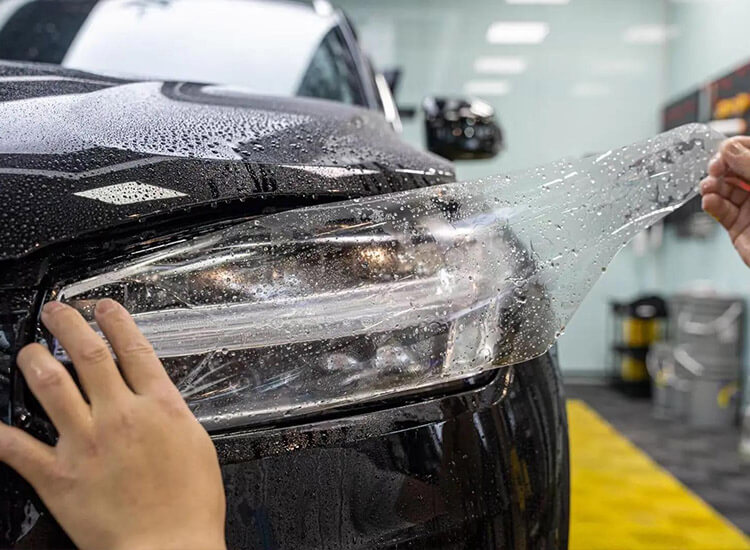
PreproPPF Clear PR-Q01
PreproPPF Factory Direct Supply
Looking for premium Paint Protection Film at factory prices? PreproPPF offers high-quality TPU-based PPF with self-healing, anti-yellowing, and superior gloss. We are a professional manufacturer providing factory-direct pricing and free worldwide delivery, ensuring you get the best value without middlemen.
FAQs
1. What Is the PPF on Car Price?
The cost of PPF on a car varies by brand, coverage area, and installation. Partial coverage starts around $900–$1,500, while full-car protection can range from $4,500 to $8,000+. Premium brands like XPEL or 3M may cost more but offer longer warranties and better self-healing properties.
2. What Are the PPF on Car Pros and Cons?
Pros: Protects paint from chips, scratches, and UV damage; self-healing technology; maintains resale value.
Cons: High upfront cost; requires professional installation; cheaper films may yellow over time.
3. What Is the Best PPF on Car?
Top-rated PPF brands include XPEL Ultimate Plus, 3M Scotchgard Pro Series, LLumar Valor, SunTek PPF, and Pure PPF. The best choice depends on your car type, budget, and desired protection level.
4. PPF Car vs Ceramic Coating: Which Is Better?
PPF provides physical protection against scratches and chips, while ceramic coating adds hydrophobic properties and enhances shine. Many car owners use both for maximum protection.
5. What Are the Disadvantages of PPF on Car?
High initial cost, professional installation requirement, potential yellowing with low-quality films, and limited protection against major impacts.
6. What Is PPF Coating?
PPF coating refers to the protective top layer on the film that provides self-healing, UV resistance, and hydrophobic properties to keep your car’s paint looking new.
7. Where Can I Find Car PPF Near Me?
You can search locally for certified installers or dealers offering premium brands. Many PPF suppliers provide nationwide or global installation services, and some offer factory-direct delivery like PreproPPF.

